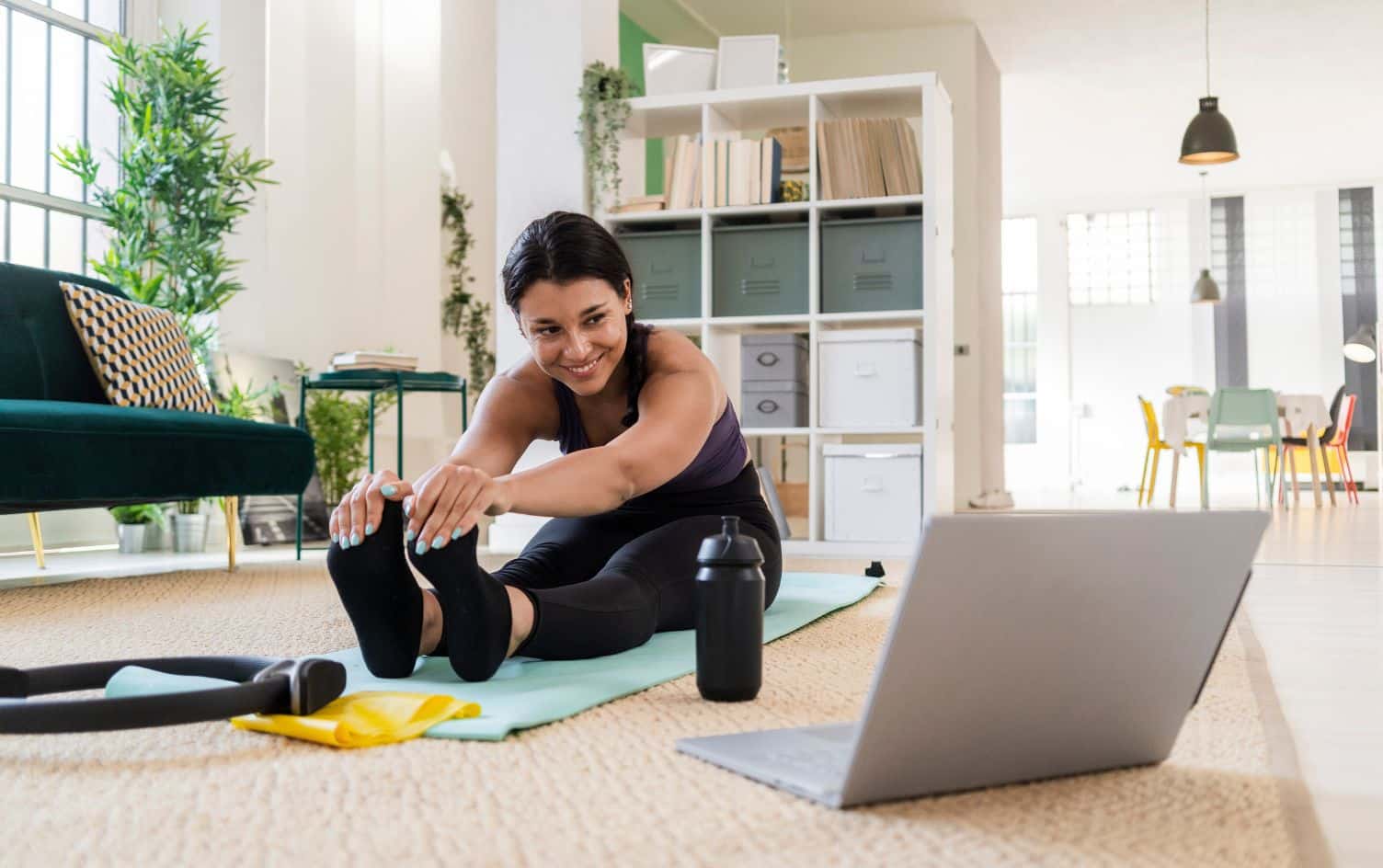Foam rolling is a self-myofascial release technique that helps with flexibility, muscle recovery and pain reduction. Other physical benefits of foam rolling include decreasing the neurological signal to the muscle, which allows them to relax. You also increase your pain tolerance which helps you put more pressure on your target muscles.
There are many shapes and styles of foam rollers — smooth foam rollers, stiffer ones, ones with grooves, long ones, short ones, even ball-shaped ones — that you can use depending on your pain tolerance. Generally, gyms have a wide variety to test. “For beginners to foam rolling, I recommend using a white cushioned foam roller as they are more forgiving,” says Keaton Ray, a physical therapist at MovementX.
As you advance through stages of foam rolling and your pain tolerance improves, you can transition to a black foam roller and then one with ridges, a hard plastic interior or even one that vibrates. Many trainers advise doing a pre-workout session and then rolling again after a workout if there’s time.
You can foam roll pretty much every area of your body: your back and shoulders, quads, calves and hamstrings.
FOAM ROLL TO COMBAT SITTING
Sitting at a desk every day, sitting through long flights and even running or cycling can lead to tight hamstrings, which impacts your workouts. “Our hamstrings are particularly important to stretch, especially for those of us who sit eight hours a day, because that’s eight hours of our muscles doing nothing except getting tight,” says Joey Daoud, CEO of New Territory Fitness.
Priming this major muscle group for a workout or simply to stretch these tight muscles is particularly important. “When you foam roll your hamstrings you are exchanging lactic acid and increasing blood flow to the area to help with oxygen exchange in the tissues,” says Ray.
USE A BALL INSTEAD OF A ROLLER
“Hamstrings are bit tricky to properly roll out just because of our anatomy and their location,” says Daoud. One of the easiest ways is to grab a hard ball, such as a lacrosse ball, and sit on it on a hard surface. The most penetrating method is to stack the feet, one on top of the other, to add more weight to the trigger points in the hamstring. This method will be done one leg at a time. Dig into your muscles and massage out your hamstring.
DON’T MISS TRIGGER POINTS
“You can start with a foam roller on your behind and then roll it down your hamstrings slowly looking for any tension or trigger points throughout both of the hamstrings,” advises Jamie Hickey of Truism Fitness. Be sure to rock your weight from side to side, searching for tension along the outside and inside links of the hamstring.
To complete a proper static hold — or lack of movement — roll the foam roller on to a painful area and hold this position for 20–30 seconds. You will continue this method throughout all the trigger points on your hamstrings until the pain begins to subside.




